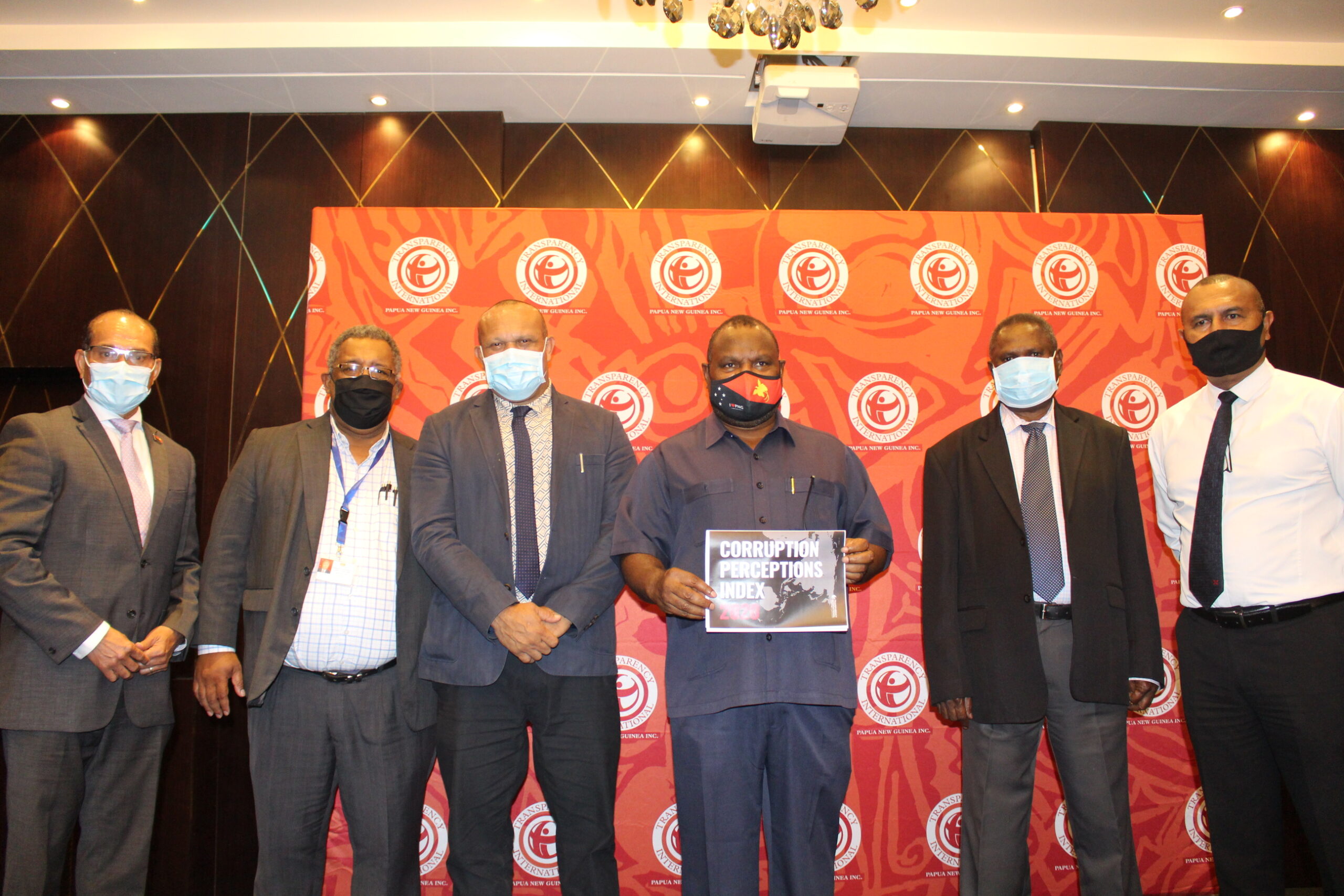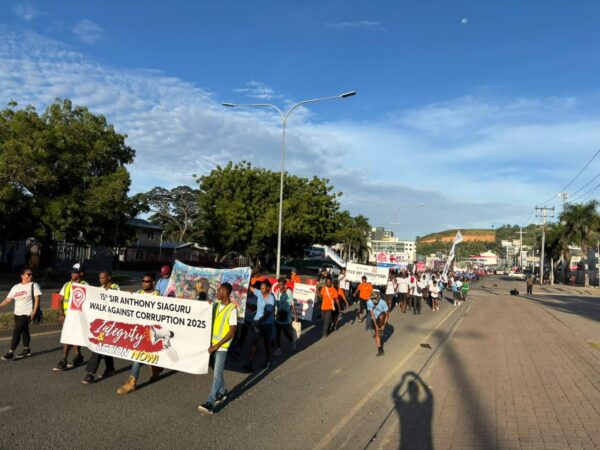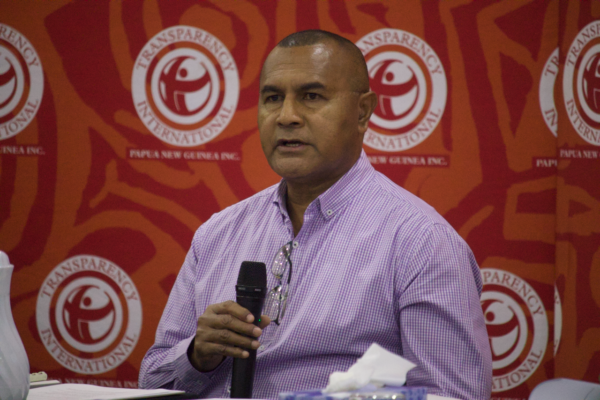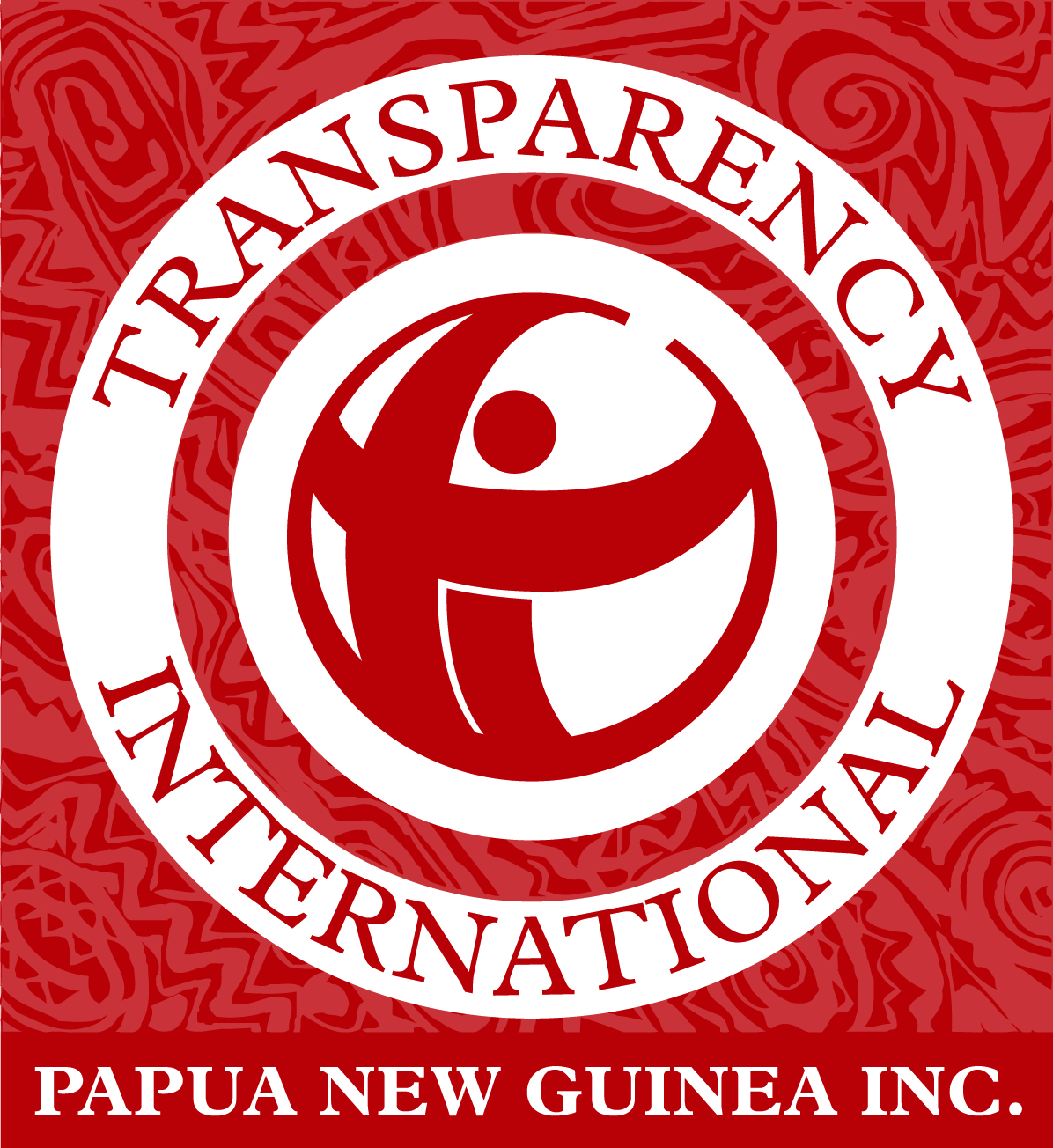In support of government efforts to introduce effective anti-corruption reforms in PNG, Transparency International PNG (TIPNG) today, facilitated an Anti-Corruption Enforcement Dialogue involving the leaders of law and justice sector agencies, in tandem with their official launching of the 2020 Corruption Perceptions Index (CPI) report.
A focus for this year’s CPI report was to measure, in the various countries, the impact of persistent corruption on health care systems and the how this may contribute to the erosion of democratic norms. The CPI results showed the impacts were more pronounced amid the recent COVID-19 pandemic for low-scoring countries.
In launching this year’s CPI report, TIPNG highlighted that PNG scored 27 out of 100, with a ranking of 142 out of 180 countries assessed. The 2020 CPI results were officially launched in PNG under the theme: “Putting the sight back in oversight”. Following an assessment of recent legislative changes introduced by the PNG government, TIPNG has recommended four core areas which, if focused on, have the potential to drastically reduce the impact of corruption in country.
TIPNG’s four recommendations are:
- Strengthening Oversight institutions: Anti-corruption authorities and oversight agencies must be independent of political influence and must have appropriate funding to perform their duties effectively.
- Ensuring open and transparent contracting: Improved transparency in government tendering and expenditure will ensure that resources reach those most in need.
- Promoting greater civic space: Allow for active citizen engagement, better use of public consultation forums in planning and national budget development so that government can be more accountable to its people.
- Improve access to public information: Ensuring the public is able to better access public information in a timely manner will assist achieve greater transparency and accountability for Government.
During the official launch event, TIPNG Board Chair Peter Aitsi stated that corruption was not an issue which could solely be addressed by the government, but that greater collaboration and solidarity is critical to ensure effective and sustainable change is achieved.
“Greater collaboration is needed from all state and non-state actors to ensure that the recent reforms by the government are effectively implemented and translate into meaningful change at the community level. The impact of corruption in our country cannot be reduced unless we demonstrate solidarity and each person plays their part in driving the change we want to see in our country,” he said.






